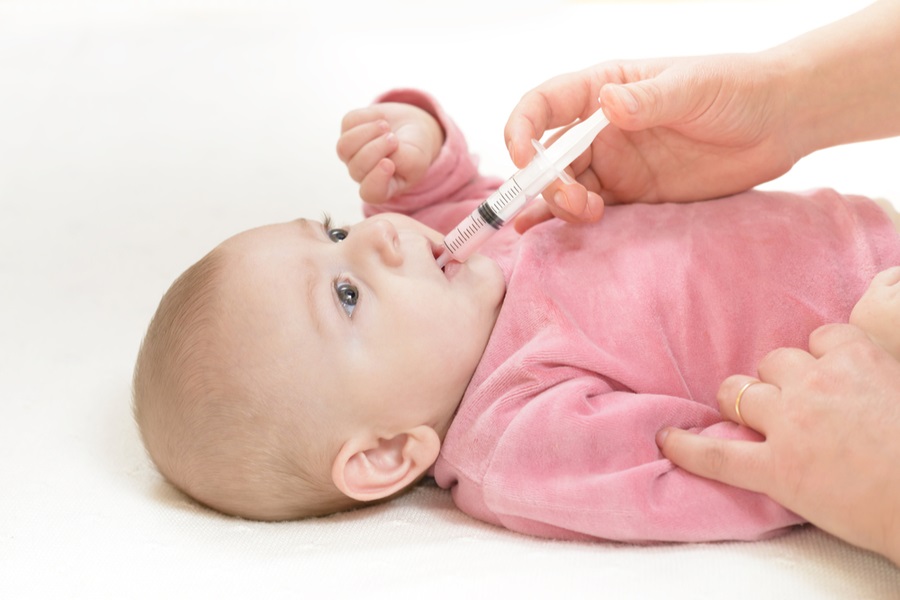Scandinavian study finds connection between celiac disease, antibiotics and how often they are prescribed

By Amy Ratner, Medical and Science News Analyst
Antibiotics given to children in their first year might slightly increase the risk of celiac disease, a recent study of the medical records of more than 1.7 million Scandinavian children found.
Researchers looked at records in two independent health registries in Denmark and Norway and found about 3,500 children who were diagnosed with celiac disease before the age of 20.
![]() Systemic antibiotic: an antibiotic usually taken orally that affects the entire body compared to a topical antibiotic that is put on the skin to kill bacteria
Systemic antibiotic: an antibiotic usually taken orally that affects the entire body compared to a topical antibiotic that is put on the skin to kill bacteria
Of the approximately 1400 children with celiac disease from Denmark, about 44 percent had been given a systemic antibiotic by age 1, compared to 39 percent of Danish children who did not have celiac disease.
In Norway, celiac disease was found in about 1900 children, of whom about 20 percent had received a systemic antibiotic in their first year, compared to about 18 percent of Norwegian children who did not have celiac disease.
The association is an important finding in the search for a cause of celiac disease, study author Stine Dydensborg Sander, MD, of Odense University Hospital in Denmark, said, noting it does not mean all antibiotics should be avoided.
“There are many good reasons to treat your baby with antibiotics, if antibiotics are needed, and many good reasons not to use antibiotics, if they are not needed,” Sander said. “This study does not change this. You cannot say that you can prevent celiac disease by avoiding antibiotics or that your celiac disease is caused by antibiotic treatment. It is more complicated – and we are just beginning to understand the complex mechanisms.”
The study included all children born in Denmark from 1995 through 2012 and in Norway from 2004 through 2012.
Researchers from several hospitals and institutions in both countries, as well as the Mayo Clinic in Minnesota, conducted the study to investigate environmental factors that might influence the onset and progression of celiac disease. Celiac disease is also dependent on having specific genes, HLA-DQ2 or DQ8. But since 40 percent of the population has the genes and only 1 percent has celiac disease, scientists have been looking for additional environmental risk factors.
![]() Gut microbiome: the collection of microorganisms, bacteria, viruses, fungi and more in the gastrointestinal tract. Plays an important role in nutrient and mineral absorption, synthesis of enzymes, vitamins and amino acids
Gut microbiome: the collection of microorganisms, bacteria, viruses, fungi and more in the gastrointestinal tract. Plays an important role in nutrient and mineral absorption, synthesis of enzymes, vitamins and amino acids
The study authors note that the composition of the gut microbiome is thought to play a role in the development of celiac disease and that in early life it is “strongly influenced by systemic antibiotics and is less resilient to environmental exposures” than later in life.
Several earlier studies have also found a connection between antibiotics and development of celiac disease, but there is also conflicting evidence. Research in 2017 involving 6,600 children enrolled in The Environmental Determinants of Diabetes in the Young (TEDDY) study concluded antibiotics commonly prescribed for children do not increase the chance of celiac disease or type 1 diabetes developing in kids who are already at risk for either of the conditions.
However, the recent Scandinavian study found that as the number of systemic antibiotics prescribed increased, the risk of celiac disease also slightly increased with each new prescription. Increased risk was not related to a specific age during the first year nor to a specific antibiotic.
The study, published in the journal, Gastroenterology, says the conclusion about increased risk from antibiotics remained valid after adjustment for infections.
Previous research has found that some viral infections increase the risk for development of celiac disease, but these infections are typically not treated with antibiotics because they are caused by viruses and not bacteria.
The researchers note they could not exclude the possibility that symptoms of celiac disease mimic symptoms of infection, exaggerate infection symptoms or increase the risk of infections, resulting in more antibiotics being prescribed for children with celiac disease. This could lead to “reverse causality” in which celiac disease itself is the reason the children are prescribed more antibiotics rather than more antibiotics increasing the risk for celiac disease.
However, the study says it’s unlike this reverse scenario came into play because the association between children getting an antibiotic in the first year of life and the development of celiac disease was comparable when researchers looked at children diagnosed at a variety of ages. Additionally, researchers note that celiac disease antibodies aren’t typically found in children before the age of 1 year.
“This study, the largest of its kind on the subject with a long follow-up period…suggests that antibiotic exposure in early life could be a risk factor for celiac disease,” the authors write. “Exposure to antibiotics can by no means be regarded as the main contributing factor for development of celiac disease, but [it] suggests that antibiotics are an important candidate, perhaps in conjunction with other factors.”
The researchers call for further study to separate the effect of infections and antibiotics. Additional studies should examine more detailed information on the reason antibiotics were prescribed, the type of infection being treated and at what age, the interaction of risk factors and whether the effect of antibiotics varies between risk groups.
You can read more about the study here.
Opt-in to stay up-to-date on the latest news.
Yes, I want to advance research No, I'd prefer not to